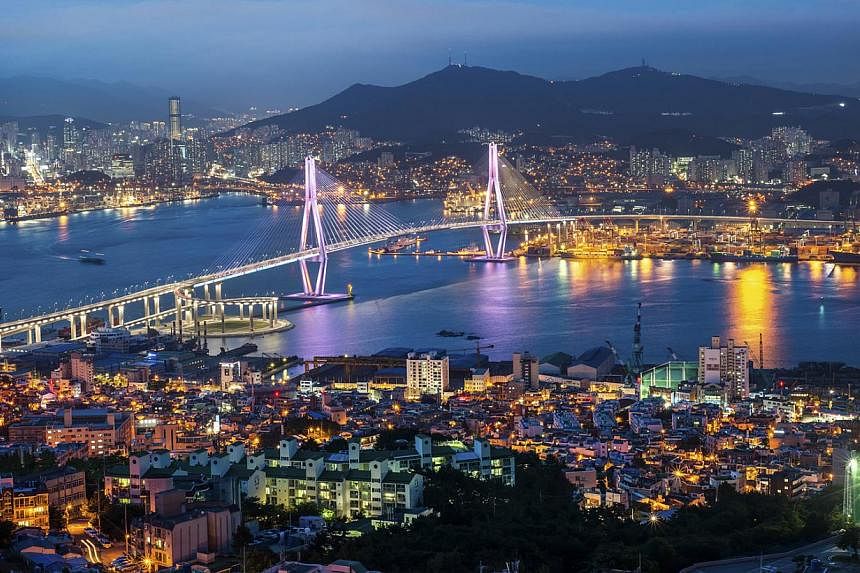Busan, South Korea's biggest port city and home to one of the glitziest annual film festivals in Asia, has grand plans to draw more visitors and grow its economy.
Outlining these plans during a speech at the recent World Journalist Conference, Busan Mayor Suh Byung Soo, 63, said his government is "laying a solid foundation" for Busan to become a North-east Asian hub for maritime logistics and finance.
He is also "pushing hard" to build a new airport as the city's Gimhae International Airport will be reaching full capacity by 2023. There are plans afoot by the central government to build a new air hub for the country's south-east but there is keen competition among cities including Busan to host it.
The Transport Ministry last year said the government would work closely with local governments to conduct "transparent and fair studies" to determine where the next airport will to be built.
Located on the south-eastern tip of the Korean Peninsula, Busan served as South Korea's temporary capital during the Korean War in 1950-1953, when an attack from the North forced people to flee southwards.
Now home to 3.56 million people, Busan is second in size only to Seoul, which has a population of 10.44 million.
It boasts the country's most popular beach Haeundae and the famous Busan International Film Festival that draws huge crowds every year, to gawk at their favourite Korean stars and foreign celebrities.
To grow its tourism and entertainment sectors further, Busan is trying to woo integrated resort operators. Las Vegas Sands Corps expressed interest in February this year to invest in a 5 trillion won (S$6.1 billion) project, but with a caveat - South Koreans must be allowed to enter, not just foreigners.
For this to happen, the law on gambling which forbids South Koreans from entering casinos must be changed. Of the 17 casinos in South Korea, only Kangwon Land Casino in north-eastern Gangwon province is open to Koreans. It was built under a special law passed in 1995 to support the development of abandoned mine areas that allows Korean patrons in the casino.
When asked by The Straits Times, Mr Suh said he has been trying to garner support for his city's casino project and is hopeful that he can submit a proposal to amend the law next month (June).
Meanwhile, the Busan government has committed a 250 billion won budget to expand the city's port this year, as well as 11.5 billion won for coastal maintenance projects. Both are deemed good signs for the economy.
Busan is also slated to play a key role in the country's IT development, particularly in the frontier area of the Internet of Things (IoT), a concept in which physical objects including living things are embedded with electronics that allow them to be linked up for all kinds of purposes from health monitoring to home automation to infrastructure management.
The city hosts one of seven creative economy centres in the country, the Busan Centre for a Creative Economy & Innovation, which was launched in March by President Park Geun Hye, to support IoT-based start-ups.
"This innovation centre will drive creative power and convergence, reinvigorating the economy and allowing both the city of Busan and Korea as a whole to grow by leaps and bounds," she said in her address.


